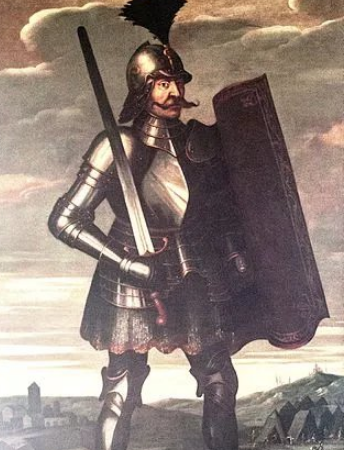In the vast history of the Eurasian continent, the names of two great conquerors and rulers are remembered by the world - Nurhachi and Genghis Khan. They both established powerful empires and rewrote the course of history. Although both were of Mongolian descent, they did not have direct blood relations. This article will explore the historical status of Nurhachi and Genghis Khan and the connection between them.

I. The Rise of Nurhachi
Nurhachi was the founder of the Houjin dynasty. He was born in Jianzhou Zuowei (now Xinbin Manchu Autonomous County, Liaoning Province, China) and belonged to the Jurchen tribe. At the beginning of the 17th century, Nurhachi united the scattered Jurchen tribes with his outstanding military skills and political acumen, established the Houjin dynasty, and styled himself Khan. His success laid the foundation for the establishment of the Qing dynasty.
II. The Great Journey of Genghis Khan
Genghis Khan, originally named Temujin, was the founder of the Mongolian Empire. He was born into a noble family on the Mongolian Plateau and, through constant conquests and unification, eventually established a vast empire that spanned Europe and Asia. Genghis Khan's military campaigns had a profound impact on world history, and his empire promoted the exchange of Eastern and Western cultures.
III. The Relationship between Nurhachi and Genghis Khan
Although Nurhachi and Genghis Khan were both descendants of the Mongolian nation, they did not have direct familial or blood relations. Nurhachi belonged to the Jurchen tribe, while Genghis Khan was a member of the Mongolian tribe. They lived in different historical periods, with Nurhachi being born approximately 200 years later than Genghis Khan. Therefore, their reigns and activity ranges were completely different.
IV. The Historical Impact of the Two Great Lords
Although Nurhachi and Genghis Khan had no direct connections, they both had profound impacts on later generations. Nurhachi's unification activities laid the foundation for the establishment of the Qing dynasty, which later became the last feudal dynasty in Chinese history. Genghis Khan's conquests ushered in the era of the Mongolian Empire, and his influence spread throughout Europe, Asia, and the Middle East.
Conclusion:
Nurhachi and Genghis Khan, although playing different roles on the historical stage, were both great lords of the grassland who influenced the world in their own ways. Their deeds are still praised by later generations, and their names have become symbols of strength and conquest. Although there was no direct relationship between them, they together wrote a glorious chapter in human history.
Disclaimer: The above content is sourced from the internet and the copyright belongs to the original author. If there is any infringement of your original copyright, please inform us and we will delete the relevant content as soon as possible.
































